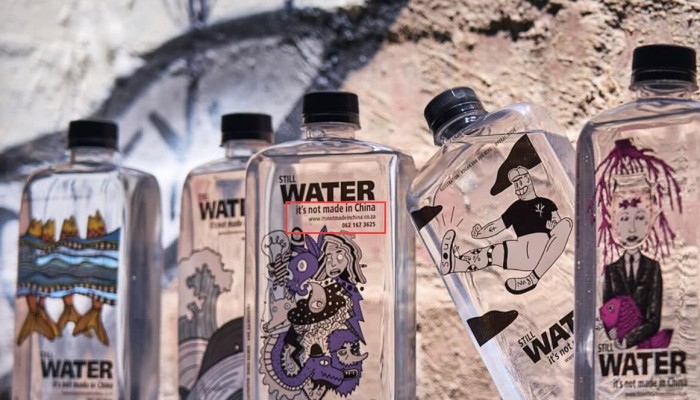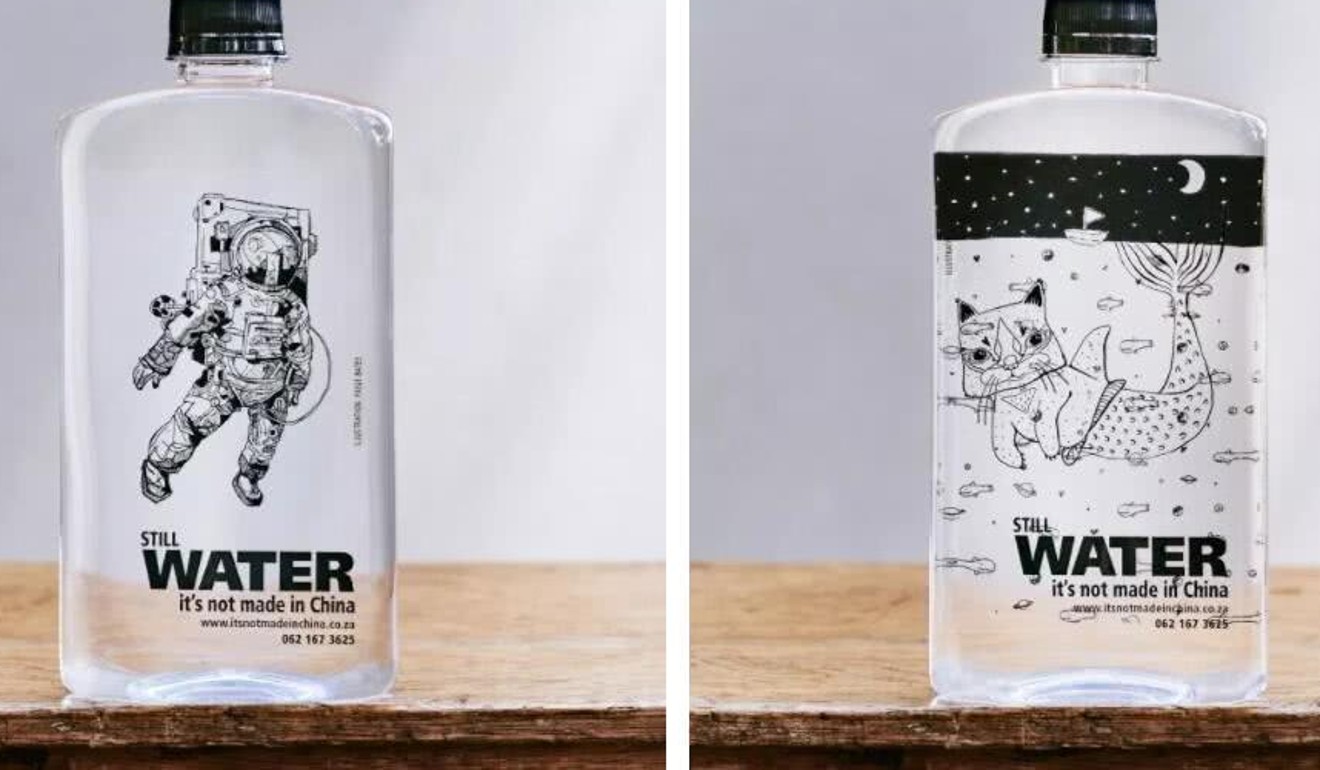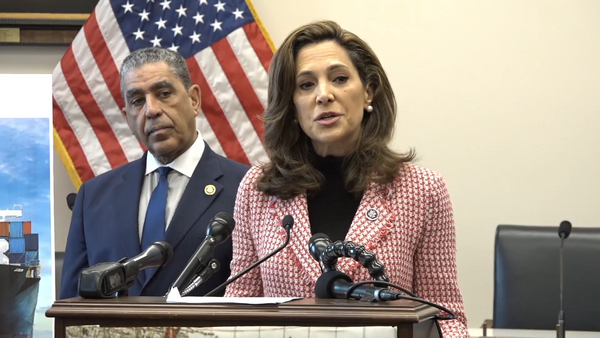
A South African bottled water company called “It’s Not Made in China” is considering changing its name after facing backlash on Chinese social media.
The company’s product first featured in a March 19 post by an average joe on China’s social media site Weibo, which showed its label “Still Water. It’s not made in China”.
“This bottled water is asking to be told off. I’m going to boycott it,” the post read.
The original post only received two comments, but was picked up by Chinese media Guancha.com and Global Times.
The Global Times post had 259,000 views.
Within days, the South African company began to receive angry messages.
“You came up with a terrible name,” a user wrote on the company’s Instagram account in Chinese on March 18. “Chinese people are working hard to improve their country and their lives, they’ve got no time for you. Racists will always exist.”

A representative from the Durban-based company told the South China Morning Post that the firm was completely surprised by the reaction.
“We never planned to create a controversy. Everything says it’s made in China. So when you put ‘it’s not made in China’, it’s quirky,” The representative, who declined to provide his name, said in a phone interview. “The reaction we first got from people was it’s like a joke.”
The company, which has operated under “It’s Not Made in China” for over four years without major issues, was at first defiant.
In response to critical messages left on its Instagram account, the company wrote “If every product had ‘It’s Made in Yugoslavia’ on it – we would’ve called ourselves ‘It’s Not Made in Yugoslavia”.
However, after seeing the reactions of Chinese netizens, the young company, which started out selling its products at markets, is feeling pressure to change its name.
“We don’t want to start a war. We were thinking of the name ‘Made in Madiba-land’,” the representative told the Post, adding that company executives feel almost bullied into doing so.
Madiba is the clan name of the beloved South African statesman Nelson Mandela. However, the representative said, a potential trademark issue prevented the company from using that name previously.
The company is only the latest foreign brand to have offended Chinese netizens in recent months.
Chinese boycott of Dolce & Gabbana continues at Milan Fashion Week
Luxury company Dolce & Gabbana landed in hot water in November after its China-themed advertising campaign was accused of containing negative stereotypes. Earlier this year, fashion company Zara and American Vogue magazine both caused a stir on Chinese social media over photo shoots that featured Chinese models not considered conventionally beautiful by Chinese standards.
After the Zara incident, the party-affiliated publication China Youth Daily cautioned netizens against being too sensitive.
“We cannot misuse the concept of ‘anti-China’ and apply it wrongly at the slightest insinuation,” the newspaper wrote in an opinion piece. “This would pollute the space for dialogue, which is a loss to the entire society.”







